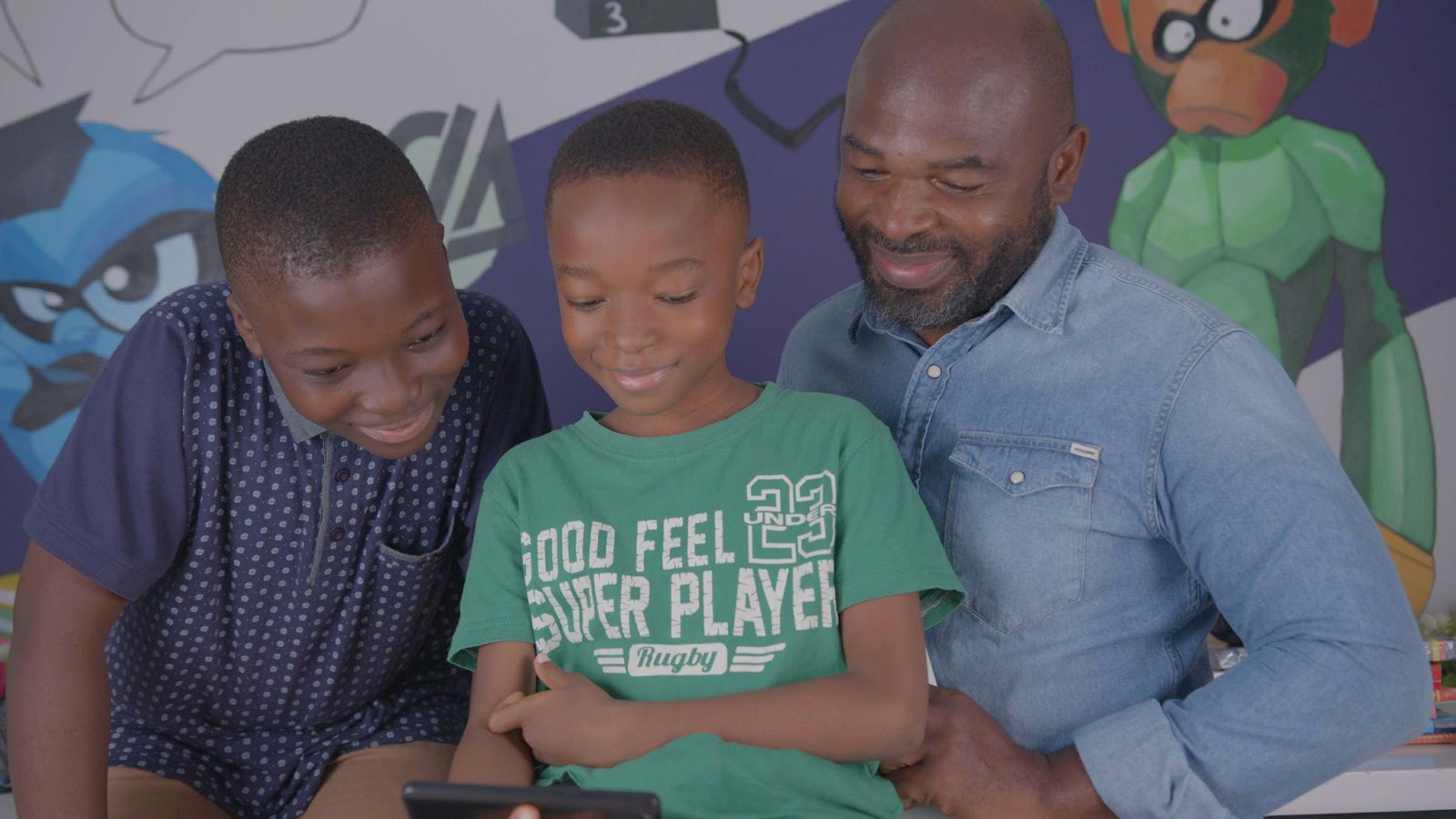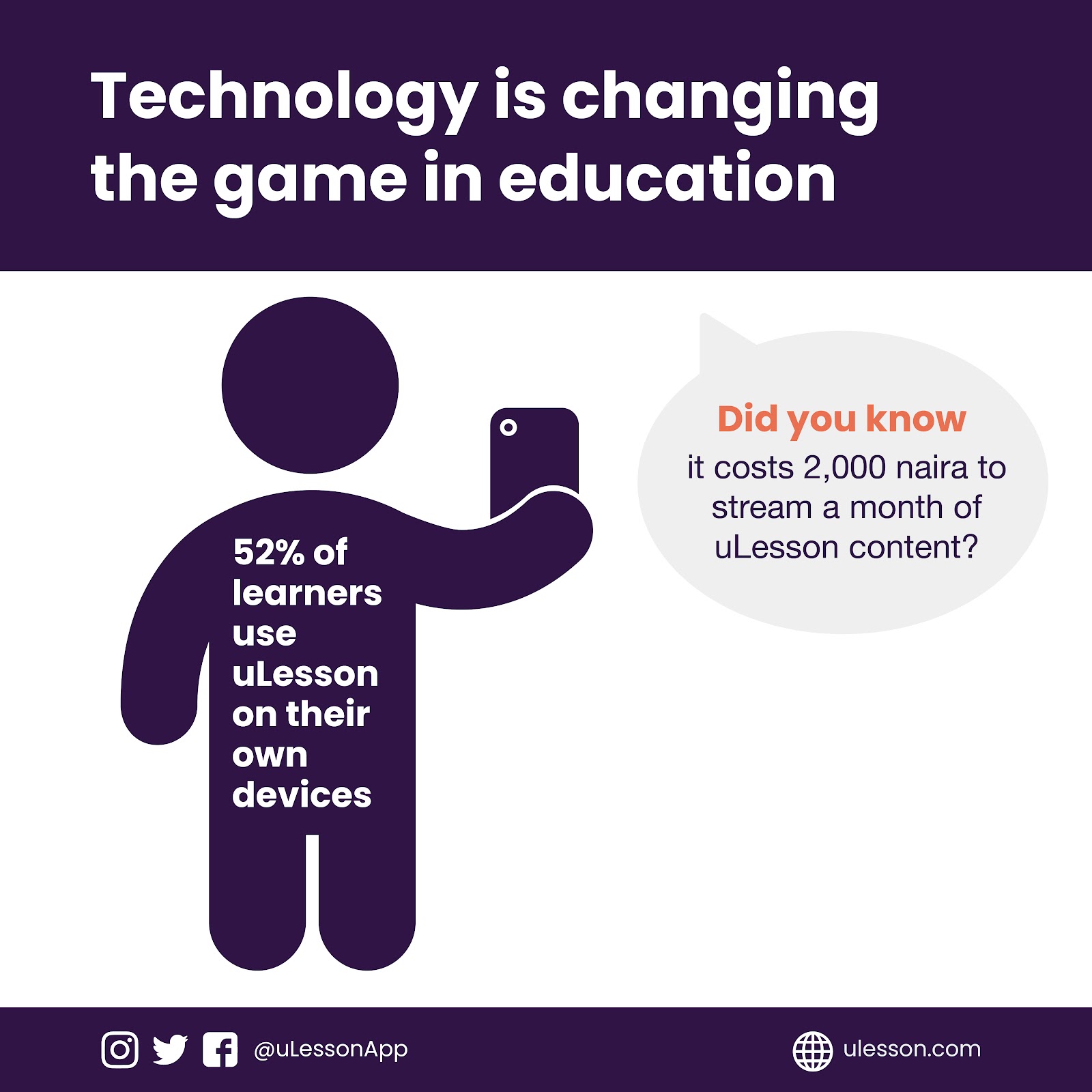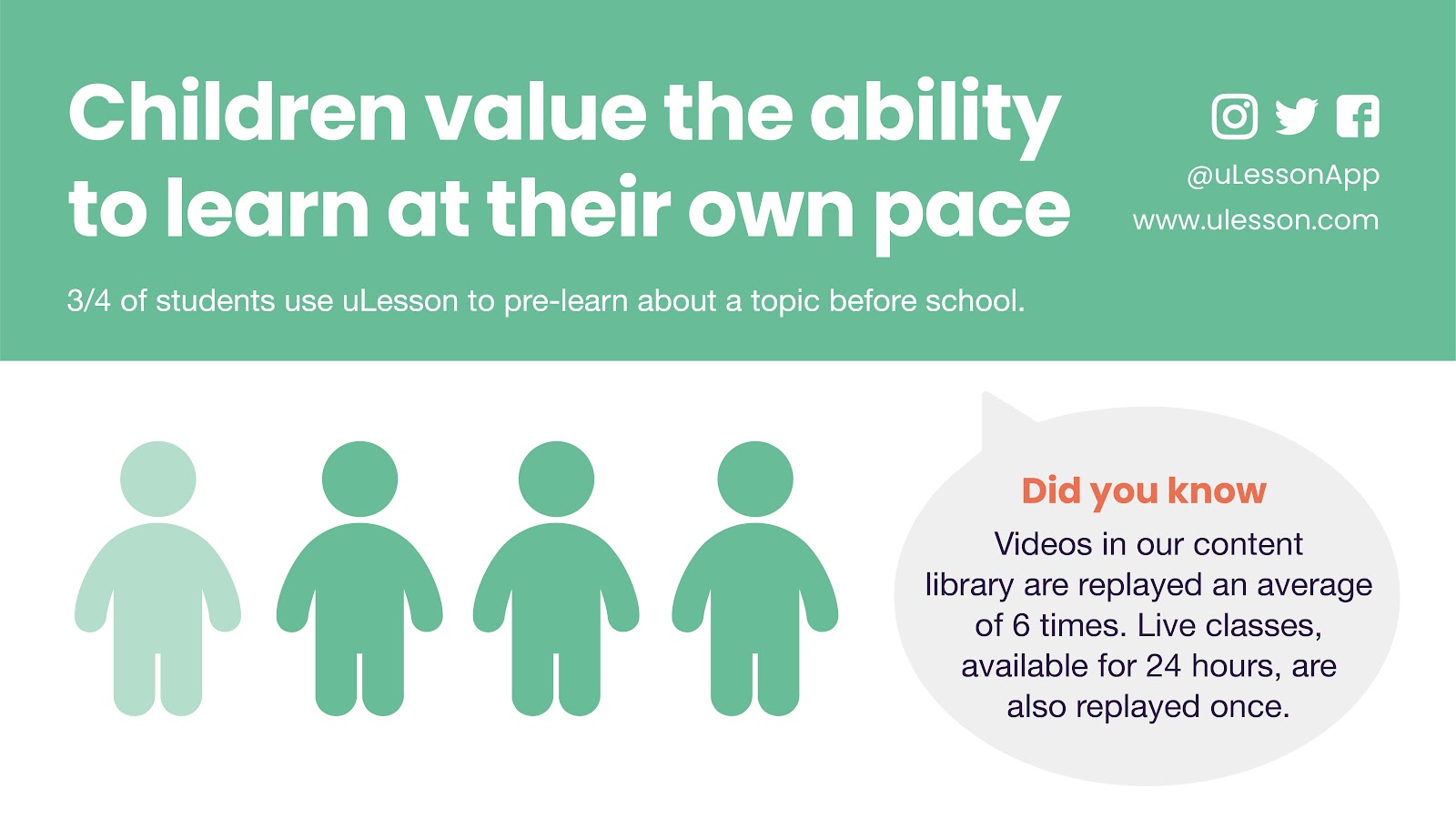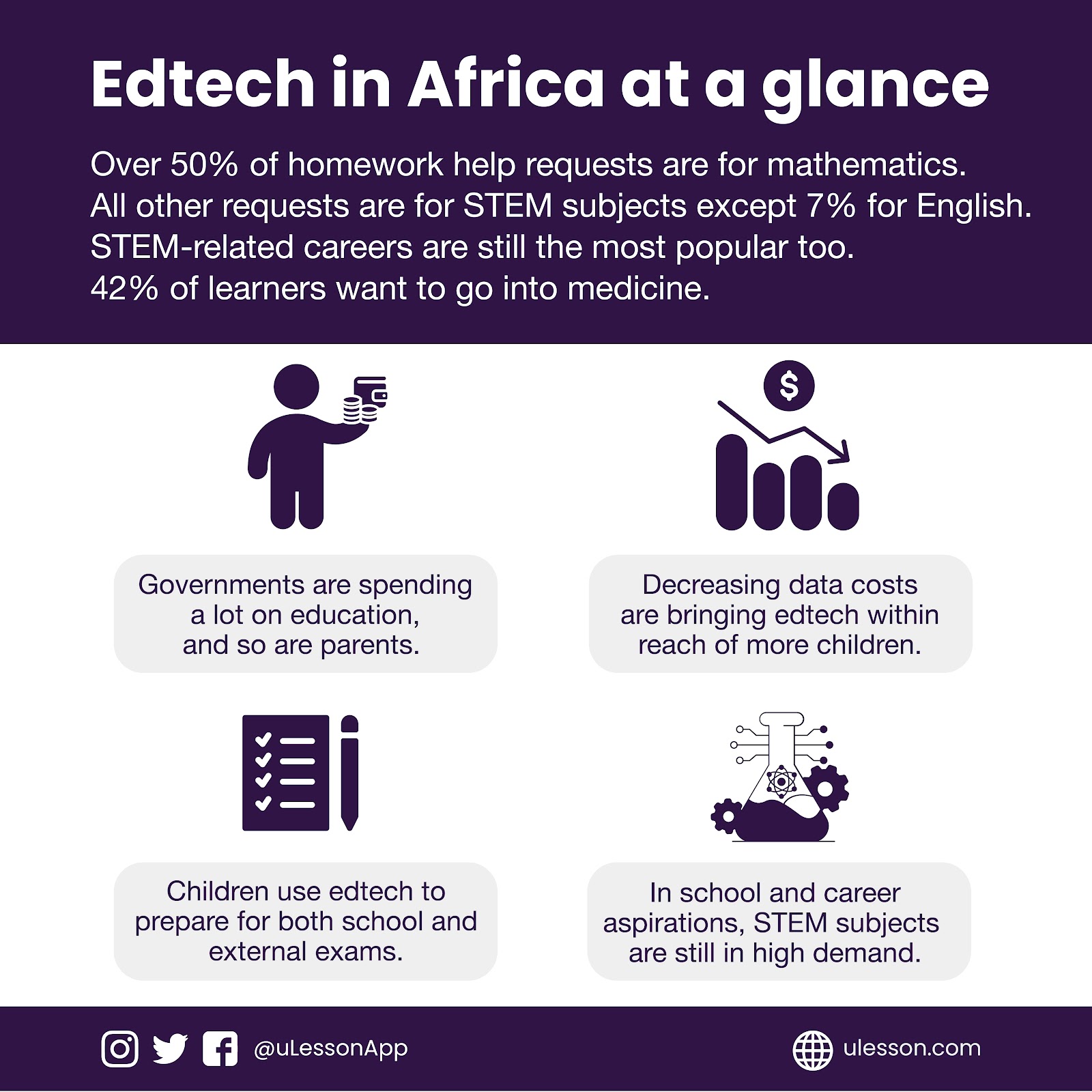Promotions
uLesson details the Impact of Technology on Education in its Latest Report
In celebration of the International Day of Education, uLesson, the leading African edtech company, today released a report on African edtech trends. The report – based on internal data and a survey answered by over 750 uLesson learners in Nigeria, Ghana, Uganda, and other African countries – provides insights into the impact of technology on education and learners’ behavioral patterns for both parents and stakeholders in the education sector.
Technology is changing the game in education. Before the COVID-19 pandemic, the idea of secondary and even primary school kids learning from a device would have seemed strange. While the pandemic helped accelerate online learning, uLesson’s continuing growth signals more to the story. Over half of uLesson learners (52%) are using their mobile phones. Handsets for children are no longer a “nice to have”, but a critical tool for modern education.

Falling internet costs have also enabled online learning. Video streaming is more affordable than ever before. With videos compressed to be as small as possible, Nigerian uLesson learners consume less than 2,000 naira worth of mobile data to access the average 54 core curriculum videos and 14 live lessons monthly. With uLesson’s partnership with Tecno to help parents acquire phones and pay in installments, handsets for children’s education are now a reality for more Nigerian families.

But are they learning or just enjoying ‘pressing phone’? On average, learners replay core curriculum videos 6 times per month. This suggests learners enjoy learning at their own pace to master key concepts. Over 75% of the students surveyed use uLesson to learn about subjects before they are taught in schools

STEM topics are still the most popular subjects on the app. More than a quarter of watched videos (26%) from the content library were for mathematics across all grade levels. Of all video plays, STEM subjects accounted for 76%, while English was the highest non-STEM topic with 20%. In the personalized homework help feature – where learners are connected to a tutor to help with assignments – more than half of the requests were for mathematics. Even more interesting, despite all the careers that have emerged in the last decade, most learners still want to pursue science-related careers. When asked what they wanted to be when they grew up, over 40% of learners wanted to pursue medicine. Perhaps that will change when universities start offering courses in being social media influencers.
However, the report highlights that there is still a long way to go for edtech in Africa. More infrastructure is needed to make edtech readily available to more children. Edtech will never replace traditional schooling. Rather, it will be a complimentary resource for in-person learning. With over a third of learners using the platform to prepare for milestone exams like WAEC and JAMB, educators appreciate the potential of uLesson to complement at-school learning. Some uLesson learners have completed secondary school and are using it to retake WAEC and JAMB while in Uganda where schools were closed for 18 months – the longest in the world – due to the Covid-19 pandemic, it acts as a sole source of education.

The full report can be found here: Edtech in Africa
Would you buy a uLesson package for your child or ward? Have your say in the comments below.
ABOUT ULESSON
Founded in 2019 by Sim Shagaya, uLesson is a Nigerian technology education company that is on a mission to provide high-quality, affordable, and accessible education to all Africans. uLesson offers live online classes with expert tutors, video lessons, and personalized live homework help for primary and secondary school learners online and via its app. With the best-in-class teachers, media, and technology, uLesson provides high-quality and interactive learning that also allows learners to go at their own pace.
With uLesson, learners have mastered the core curriculum, improved their test scores, and renewed their confidence in learning. Some uLesson learners have moved from the 50th percentile to the 90th percentile in their class – one whole standard deviation. uLesson is available in Nigeria, Ghana, Sierra Leone, Liberia, The Gambia, Kenya, Uganda, Rwanda, South Africa, the US, and the UK.
Find out more at uLesson website
Sponsored Content

















